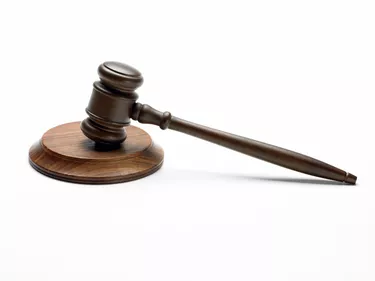
Whether you plan to report a neighbor for welfare fraud, find out why an ex-spouse quit paying child support or wish to study the merits of California's welfare-to-work system, one major obstacle involves finding out whether an individual receives or did receive welfare benefits from the California Department of Social Services. Historically, California's state agencies kept private the names and addresses of welfare recipients. Today, though, you can use a few different approaches to uncover information about individuals who have received welfare benefits from the state.
Step 1
Perform a background check on an individual to determine whether someone has received welfare benefits. You have the option of performing your own check or paying to have a firm conduct a background check. If you choose to perform your own check, start by asking friends and relatives of the individual. People with knowledge of the individual's life may provide information, but they also might be suspicious. Be sure that you have a legitimate reason for your inquiry. A neighbor might trust you more if you explain that your ex-husband quit making child support payments or that you are concerned about a relative's well-being.
Video of the Day
Step 2
Check court records. The California Public Records Act and the federal Freedom of Information Act make most court records open to the public, and these records might include information about an individual's welfare history. In California, as in all states, bankruptcy filings take place at the federal level. Therefore, you must check the state's federal courthouses for documentation of an individual's welfare history. You might find information in state court records, though, if an individual used welfare as a excuse to avoid making court-ordered payments. Noncustodial parents often disclose their welfare dependence when they fill out forms related to child support payments. California state law allows California Superior Court judges to stay child support orders when a petitioner demonstrates an inability to make payments due to financial hardship. The individual might provide the court with proof of welfare benefits as a means of verifying financial hardship. An individual also might disclose welfare benefits if claiming financial hardship as a means of stopping other types of payments ordered by a California court.
Step 3
File a California Public Records Act request with the California Department of Social Services to gain access to welfare records in the state. In your request, you want to reference the state act that makes public records public. The California Public Records Act, though, exempts welfare information. This means that the California Department of Social Services reserves the right to withhold disclosure, but it is not required to withhold the information. Generally, the agency has a policy against disclosure, but you might achieve success by asking the agency to waive the exemption. In doing so, provide a compelling explanation of why you need the information. For example, a reporter might wish to use the information for a story on the state's welfare system. California's Public Records Act requires an agency to provide public records to an individual in 10 days. If it fails to provide the information or denies access, you can file suit and ask a judge to unseal the documents.
Step 4
Check online for confirmation that an individual receives welfare benefits. In today's society, many individuals share information about themselves via social networking sites, online diaries, blogs, message boards and comment forums. You might find that an individual has disclosed his receipt of welfare benefits by using a search engine for keywords. Options to try include the individual's name and the individual's email address.
Tip
Welfare benefits for one individual might not apply to others in a household. If you find that one person did not receive welfare benefits, it does not mean that other individuals in the same home do not receive benefits.
Warning
You may anger some individuals by inquiring about their welfare enrollment. It could be expensive to uncover public documents if a lawsuit is required.
Video of the Day